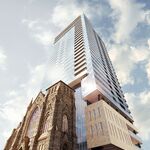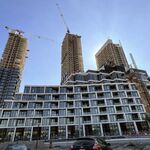King of Kensington
Senior Member
Not to mention the large number of wealthy people living in suburban Westchester County and Long Island. It's silly to look at Manhattan in isolation.
My comment regarding the golf courses was towards the cocktail of fertilizers and pesticides that usually go into the generally extensive maintenance of such spaces.
I do realize that the Bridle Path does not fit the official definition of sprawl, but you can't deny that it functions very differently from most other urban neighborhoods. On the metrics of walkability, density, access, public space and serviceability by transit, this neighborhood would register marks very similar to those of sprawl. As far as low(er) density enclaves for the very rich, Rosedale and Moore Park are much, much better, IMO.
I have a hard time thinking of the bridle path as sprawl. Aside from its urban planning/geography usage, sprawl is a word that has a definition...here is one version of it " To spread out in a straggling or disordered fashion"
Implied in that is that it is an outreach...that it makes the city bigger and extends its boundries. I don't think the bridle path does that at all.
Is it low density...sure......is less "urban" than the majority of the city...yes.....is it sprawl....IMO, no.
The Bridle Path was sprawl in 1960, but no longer in 2010?
I agree that it makes sense to follow the "Manhattan model."
I don't play golf, but I see them as just parkland specifically designed for a particular outdoor recreational sport....not the oil refinery environmental disaster you seem to be implying they are.

I like to call it ‘the national automobile slum.’ You can call it suburban sprawl. I think it’s appropriate to call it the greatest misallocation of resources in the history of the world.
Parkland should be for the benefit of everybody and support a variety of activities. Golf courses are only for the lucky few who have a paid membership that allows them to use it.
Also, "environmental disaster" is right. They are a cesspool of pesticides, fertilizers, and water wasting that gets flushed into out rivers. From above it looks more like a scar upon the earth than a park.
Is there something preventing them from selling a huge piece of land like that to developers? Are golf courses protected by zoning in some way?
I'm probably wrong, but I'm finding it difficult to imagine that a golf course deep within the city could be profitable enough to keep the owners from cashing out.
Is there something preventing them from selling a huge piece of land like that to developers?
Are golf courses protected by zoning in some way?




